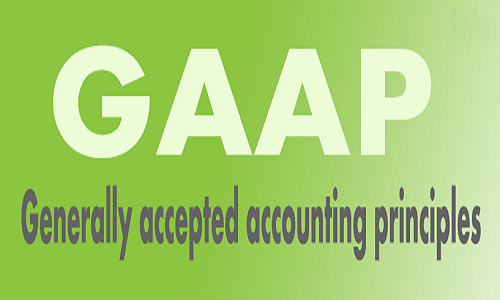Difference between GAAP and OCBOA
With the increasing complexity of businesses, there are many companies that use a different basis of accounting to prepare financial statements in order to fulfill certain requirements of the business. Large organizations generally follow GAAP (Generally Accepted Accounting Principles) to prepare their financial reports. However, it isn’t the case with all the companies. There are many companies that choose to make non-GAAP financial statements. One of the basis used for the preparation of these reports is called Other Comprehensive Basis of Accounting, also known as OCBOA. It is easier to prepare and understand the statements prepared under the OCBOA, as compared to the financial statements that are prepared under GAAP. OCBOA are normally used by small companies.
What is GAAP?
Generally Accepted Accounting Principles or GAAP are the commonly used accounting principles that are adopted by companies to prepare their financial statements. It includes a combination of authoritative standards that are designed by the policy board, and are used to record and report accounting information for the stakeholders. GAAPS are prepared in accordance with the accounting and reporting guidance issued by the Financial Accounting Standards Board (FASB).
What is OCBOA?
The financial statements under Other Comprehensive Basis of Accounting or OCBOA differ from the reports prepared in accordance with GAAP. It includes the tax-based financial statements and cash-basis financial statements. It also includes a statutory basis of accounting, which is used by insurance companies to comply with the rules and regulations laid out by a state insurance commission. Financial statements prepared under OCBOA can be compiled, reviewed and audited.
Differences between GAAP and OCBOA
It is clear from the definitions of both GAAP and OCBOA that they are two different accounting measures. Let’s look at some of the difference between financial statements prepared on the basis of GAAP and financial statements prepared on the basis of OCBOA.
Easier to Understand – Financial statements prepared under OCBOA are easier to understand and prepare than the GAAP-based reports. Moreover, they are less complex and less expensive to prepare. Financial statements prepared on the basis of GAAP, on the other hand, can be very complex, and due to this complexity, it will be costly to prepare these statements.
Requirement for a Statement of Cash–flows – Unlike GAAP-based statements, statements prepared under OCBOA do not require a statement of cash flows. Therefore, companies that follow OCBOA are not required to prepare the statement of cash-flows for the presentation of the financial statements. However, if companies choose to present cash receipts and payments in a format similar to the statements of cash flows, or if they opt to present a statement of cash flow, it is mandatory for these companies to either follow the requirements as laid out in GAAP presentation, or provide a substance of the Generally Accepted Accounting Principles requirements.
Presentation of Financial Statements – If Generally Accepted Accounting Principles or GAAP put forward the requirements that are applicable to the presentation of financial statements, it is obligatory for the OCBOA financial statements to either comply with those requirements, or give information that explains a substance or crux of those requirements.
Fair Value and Disclosure Requirements – The requirements of fair value measurement and disclosure as put forth in the GAAP need not to be incorporated in the OCBOA financial statements, because tax basis statements account for measurements in accordance with the measurements included in the tax returns, whereas, cash basis financial statements incorporate measurements on the basis of cash receipt and cash payments.
Consolidation of Variable Interest Entities – The consolidation of variable interest entities as required under GAAP, is not needed to be included in OCBOA financial statements, because tax basis statements already include the consolidation of affiliated entities on the basis of provisions of income tax regulations and laws, and there is no need to incorporate a consolidation of variable interest entities in financial statements that are prepared on a cash – basis.
- Difference Between Ocular Rosacea and Blepharitis - September 22, 2023
- Difference Between Toxic and Nontoxic Goiter - August 18, 2023
- Difference Between Anterolisthesis and Retrolisthesis - July 31, 2023
Search DifferenceBetween.net :
Leave a Response
References :
[0]https://commons.wikimedia.org/wiki/File:Generally_accepted_accounting_principles,_GAAP.png

